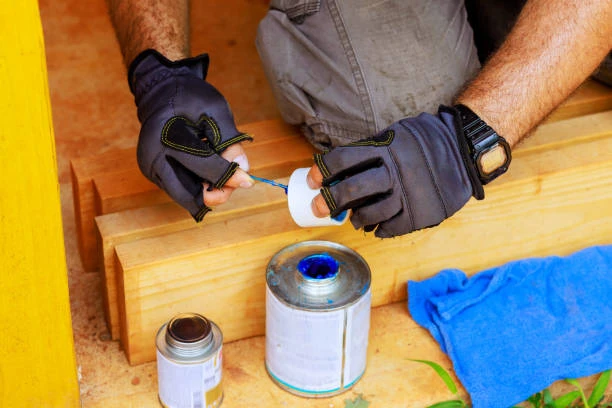Introduction
PVC pipes and fitting play a vital role in modern plumbing systems. Their affordability and ease of use make them a popular choice. However, a recent report sheds light on significant risks associated with their use in drinking water systems. These risks involve chemical leaching, environmental damage, and durability concerns. This article examines the findings and discusses safer alternatives.
Understanding PVC Pipes and Fittings
PVC, or polyvinyl chloride, is a synthetic plastic widely used in plumbing. It connects pipes and transports water efficiently.
Why Are PVC Pipes So Popular?
- Lightweight and easy to install.
- Resistant to rust and corrosion.
- Affordable compared to metal alternatives.
Key Uses in Drinking Water Systems
- Residential plumbing.
- Municipal water supply.
- Irrigation systems.
Highlights from the New Report
The report warns about PVC pipes and fittings posing risks to drinking water safety and human health.
Chemical Leaching
- PVC pipes may release harmful substances like vinyl chloride and phthalates.
- These chemicals can contaminate water and harm human health.
Microplastics Release
PVC degradation can produce microplastics, polluting drinking water and affecting ecosystems.
Performance Under Heat and Pressure
PVC pipes struggle to maintain integrity in high-temperature or high-pressure systems, leading to potential failures.
Health Risks of PVC Pipes and Fittings
Toxic Chemicals in Drinking Water
- Prolonged exposure to chemicals leached from PVC may harm liver and kidney health.
- Some compounds in PVC may disrupt endocrine functions, especially in children.
Bacterial Growth
PVC’s smooth surface can sometimes harbor bacteria, especially if not maintained properly.
Environmental Concerns Raised by the Report
Non-Biodegradability
PVC takes decades to decompose, contributing to long-term landfill waste.
Toxic Production Process
Manufacturing PVC emits hazardous substances, including dioxins, harming the environment and nearby communities.
Improper Disposal Risks
Burning or dumping PVC pipes can release harmful toxins into the air and soil.
Structural Weaknesses of PVC Pipes
Brittle Under Stress
PVC pipes may crack or shatter under heavy pressure or during freezing conditions.
UV Degradation
Prolonged exposure to sunlight weakens PVC, reducing its lifespan.
Unsuitability for Hot Water
PVC softens at high temperatures, making it unsuitable for hot water applications.
Comparing PVC Pipes to Safer Alternatives
PEX Pipes
PEX pipes handle both hot and cold water systems efficiently and resist cracking.
Copper Pipes
Copper offers durability, natural antimicrobial properties, and a long lifespan.
HDPE Pipes
HDPE pipes provide flexibility, chemical resistance, and environmental safety.
How to Minimize Risks When Using PVC Pipes
Choose Certified Products
Buy PVC pipes certified for drinking water applications to reduce contamination risks.
Inspect Regularly
Check for cracks, leaks, or discoloration that might indicate damage.
Avoid High Temperatures
Use PVC only in cold-water systems to maintain structural integrity.
Proper Disposal
Recycle PVC pipes responsibly to prevent environmental harm.

Implications for Consumers and Industries
Raising Awareness
The report emphasizes the importance of informed decisions regarding materials used in drinking water systems.
Policy Changes
Governments may impose stricter regulations on PVC usage to ensure public safety.
Focus on Sustainable Solutions
Promoting alternatives like HDPE or copper aligns with environmental and health goals.
Conclusion
The new report highlights critical issues with PVC pipes and fitting in drinking water systems. From chemical leaching to structural weaknesses, the risks demand immediate attention. Consumers and industries should explore safer materials like PEX, HDPE, and copper to ensure water quality and long-term sustainability. Making informed choices can protect health and the environment while enhancing system reliability.
FAQs
1. Are PVC pipes safe for drinking water?
Certified PVC pipes are safer but may still pose risks of chemical leaching over time.
2. Can PVC pipes handle hot water?
No, PVC pipes soften and may fail in hot water systems.
3. What are better alternatives to PVC pipes?
PEX, HDPE, and copper pipes offer safer and more durable options.
4. How can I ensure my PVC pipes are safe?
Inspect them regularly and choose products certified for potable water use.
5. Is PVC recycling possible?
Yes, but recycling PVC requires specialized facilities to avoid contamination.